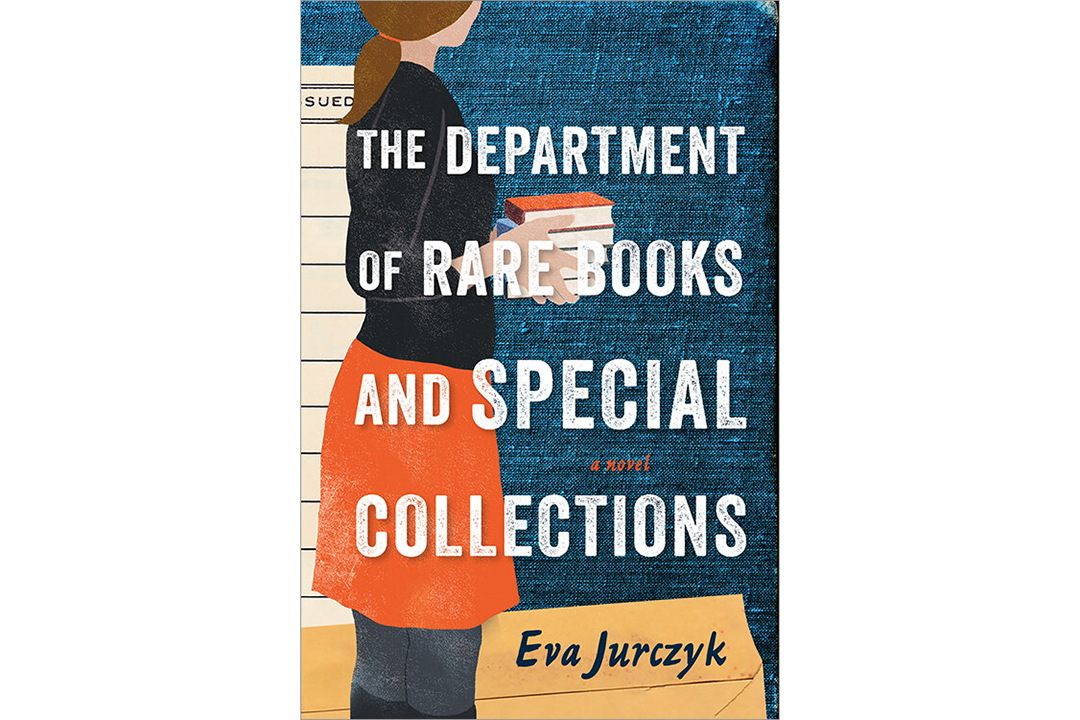Eva Jurczyk, the coordinator of humanities collections at U of T Libraries, has written a mystery novel set at the St. George campus. Her book, The Department of Rare Books and Special Collections, features familiar landmarks such as Robarts Library and nearby shops.
The protagonist of Jurczyk’s story, Liesl Weiss, works in the rare books department of a large university. After the library’s prized manuscript goes missing, a series of mysterious events — including the disappearance of a librarian — starts to unfold on campus.
The Varsity sat down with Jurczyk to discuss how working at U of T inspired her story, how she developed its plot and characters, and advice she’d give to students who are interested in creative writing.
U of T inspiration
During the interview, Jurczyk mentioned that her novel is loosely based on her experience working in the Thomas Fisher Rare Book Library when she was a graduate student at U of T.
“I worked with a really interesting cast of characters, and some of the people who I worked with had been there for decades,” Jurczyk said. “They had these really… complicated relationships with one another… there were really deep friendships, but also resentments over petty things that had happened 20 years ago.”
With its cathedral-like bookshelves and two layers of basement filled with books, the location was a great inspiration to Jurczyk. “I would go to work every day, and it would be just this magical maze of rare books, and you know, Shakespeare’s First Folio, and a collection of Darwin, and Frederick Banting, his Nobel Prize, and some things [that] are a lot more obscure too,” she said, beaming.
Jurczyk did research for her book by looking at old newspaper clippings and magazine stories. Based on her research, she believes that the theft of rare books is always a crime of passion because it’s impossible to resell the stolen materials.
“I was really interested in, like, if you’re the type of person who does this, what happens afterward,” Jurczyk explained. “The answer usually is that [you would] just keep it in [your] house, because these people just love these materials so much that they want to be around them.”
Jurczyk referenced a few famous cases in which people who worked in libraries for decades stole millions of dollars’ worth of materials and stored them under their beds at home. She shared the story of a case in which valuable materials were stolen for about 15 years, but the staff did not report it to the public.
Jurczyk also did research to create the books that appeared in the story. She described these printed materials as “characters” because they’re based on real books. Jurczyk searched through auction catalogues to investigate the history and provenance of the books that inspired them. According to the author, the stolen manuscript in her story was based on a book up for auction in 2013 or 2014, but there was not a public record of who bought it. “Some of these things are mysterious… if you are a private collector, you wouldn’t necessarily want someone to know that you have millions of dollars of books in your home,” she explained.
Developing plot and characters
Jurczyk created the characters in her novel by combining characteristics from the people she encountered or worked with in and out of the library. She observed their personality quirks and the way they spoke or dressed, using those to inspire her characters. “It’s more of taking bits and pieces of interesting ways that people behaved, and knitting them into a character,” she added.
I asked Jurczyk about the process she used when developing plot and characters. She explained that she started her first draft with a rough outline, keeping her writing broad and straightforward. She then added hints about ideas that would be explored later in her text to build up tension.
“I thought about the stuff that I love when I read mystery novels, which is sort of like a confusion and red herring, the misdirections about who might have been the culprit,” Jurczyk said. She shined light on the suspects, giving the readers an opportunity to spend time with each individual so they could develop some affection for them.
Advice for student writers
What advice would Jurczyk give to students that want to write their own novels but are struggling with the idea?
“Everything gets so easy once you just finish your first draft,” she explained. “I think you just have to finish… you have to really divorce yourself from the idea that that first draft has to be any good, because you can do all that later… you just have to get to the last page.”
Jurczyk explained that she’s wanted to be a writer since childhood, and she’d written a lot of manuscripts that she never completed. “One day, you just have to get past that psychological barrier. And then once you do it for the first time, then you know how to do it, and you know what works in the process for you, and you can do it again.”
The Department of Rare Books and Special Collections, Jurczyk’s debut novel, will be released on January 25, 2022 by Poisoned Pen Press.


